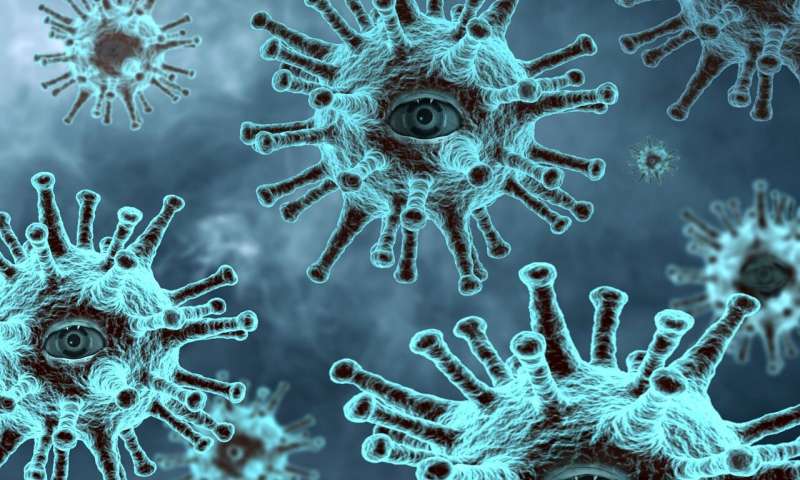Murdoch University’s Australian National Phenome Center (ANPC) working with researchers at the University of Cambridge have developed a predictive metabolic model for COVID-19 infection that shows multi-organ effects.
“To effectively navigate the coming waves of COVID-19, we need to be able to accurately diagnose and predict severity of disease for infected individuals at an early stage so that they can be more effectively monitored and managed,” said Professor Jeremy Nicholson, Director of the ANPC.
Researchers collected blood plasma specimens from a group of Western Australian COVID-19 positive patients and a control group of healthy age and body mass matched participants to determine the key metabolic differences between the groups.
The samples were analyzed using state-of-the-art metabolic phenotyping technologies at the ANPC, which revealed a profound biological fingerprint of the disease that includes elements of liver dysfunction, dyslipidaemia, diabetes, and coronary heart disease risk. These have all been found to be related to the long-term effects in patients that were affected by the original SARS virus.
These fingerprints mark systemic changes in biochemistry and are irrespective of the time of collection during the active disease process and independent of the overall severity of respiratory symptoms.
“We still have to fully validate our tests before we can deploy them at the field level and that is why we are collaborating with the University of Cambridge to analyze large numbers of new plasma samples obtained from UK COVID-19 patients and this is now underway,” said Professor Nicholson.
“Perhaps the most important observation is that the disease involves multiple organs and the majority of the patients show signs of newly presenting diabetes and liver damage irrespective of the severity of the lung symptoms. Many of the metabolic features that we pick up are not part of routine clinical chemical testing and this has immediate patient management implications because these morbidities might be occurring under the radar of the current testing paradigms as they can be quite subtle. These emergent pathologies need to be managed at the same time as the acute respiratory problems to optimize patient recovery. What we do not know is how persistent these symptoms are or whether they change long terms disease risks for recovered patients. Detailed follow up studies on recovered patients at the state and national level will be crucial to our understanding of long-term disease risks.”
Murdoch University


